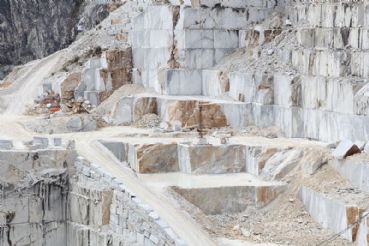Florence
Florence artistic and cultural heritage is very valuable, so that the historic center of Florence has become UNESCO World Heritage Site in 1982.
Founded in 59 BC by the Romans, as early as the Middle Ages Florence begins its economic and political growth. It is, however, between the XIII and XIV century that reached its heyday, becoming the political, artistic and cultural power, capable to influence all Europe. Thanks to the rich and powerful family De Medici, Florence became the dynamic center of the new trends in art, philosophy and politics of that time.
Its artistic and cultural heritage is very valuable, so that the historic center of Florence has become UNESCO World Heritage Site in 1982. All the monuments and buildings of the city were made by the greatest artists of all time: Giotto's Bell Tower, Brunelleschi's Dome, the Cathedral of Santa Maria del Fiore, the Basilica of San Lorenzo, the church of Santa Maria Novella, the church of Santa Croce, the Brancacci Chapel, decorated and painted by artists such as Donatello, Masaccio, Ghirlandaio, Jacopo della Quercia, the della Robbia and Michelangelo, just to mention some of the main artists.
The symbol of the city is the Piazza della Signoria, then as now the center of social and political life of the city. In the square you find Palazzo Vecchio, the Loggia dei Lanzi and the Court of Merchandise. Around these buildings you can see some important sculpture works, including Michelangelo's David, the Hercules and Cacus by Bandinelli, the Equestrian Monument of Cosimo I by Giambologna, the Fountain of Neptune by Ammannati and numerous other statues located under the Loggia dei Lanzi.You should not miss the famous Ponte Vecchio, where remained all the ancient jewelers in Florence. To get to the bridge, you pass from the Uffizi Gallery, and once crossed the bridge, you can continue until you get to the Pitti Palace, within which is located the beautiful Boboli Gardens. The Garden is in fact a veritable open-air museum, filled with antique and Renaissance statues, grottoes and large ornate fountains. Walking among its paths you can go back in time and experience the atmosphere of court life.
Routes in Versilia coast
Lido di Camaiore with its beautiful fine 4 Km long sandy beach is one of the ideal destinations for a summer in Tuscany coast
Garfagnana is a pristine area rich in history and surrounded by the Apuan Alps and the Tuscan-Emilian Apennines
The village of Camaiore is located at the bottom of a valley surrounded by hills, as well as the northern Appennins.
Forte dei Marmi is seaside town in Tuscany coast with many cafes and bars
Massarosa is known mainly for its natural beauty especially for the famous Lake of Massaciuccoli i
The beauty of Pietrasanta old town center fits perfectly with the shops of craftsmen of the marble and the laboratories
Seravezza is a small town at the foot of the Apuan Alps and one of the oldest country in Versilia
Stazzema is the smallest town in Versilia and the higher up, nestled on the slopes of Mount Matanna in the heart of the Apuan Alps.
Torre del Lago takes its name from a tower, stood near the Lake of Massaciuccoli between the XV and XVI century
Viareggio and its carnival
Discover Lucca
Visit Montalcino and Abbey of St. Antimo
Visit Pisa and discover Piazza del Duomo and the Leaning Tower
Visit the Antro del Corchia cave in Apuan Alps in Tuscany with 53 km of tunnels and galleries
The marble quarries of Carrara are one of the many wonders of the Apuan Alps that you can visit with organized tours
Hiking trail on foot to discover the town of Camaiore and its hills
Visit Siena a UNESCO World Heritage Site in Tuscany, whose symbol is undoubtedly Piazza del Campo with its original shell shape
hiking trail on foot to the discovery of Seravezza and its villages
tourist route by mountain bike along the Via Francigena from Camaiore
The Cinque Terre is a portion of coast of the Ligurian Riviera located in the territory of the province of La Spezia
Visit San Gimignano a a UNESCO World Heritage Site in Tuscany
 NED
NED






























